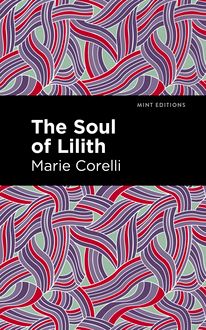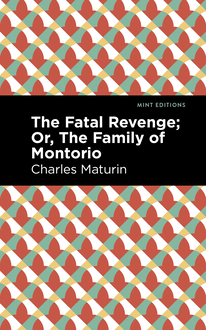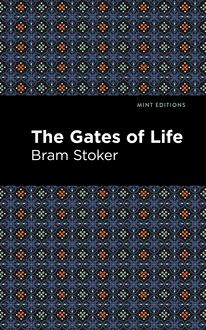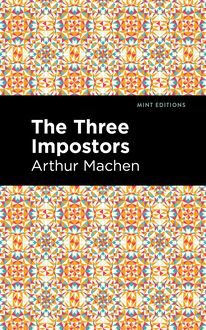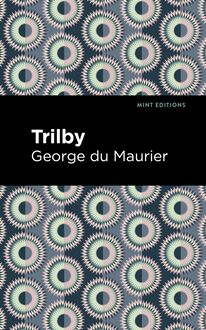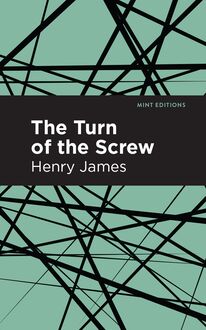-
 Univers
Univers
-
 Ebooks
Ebooks
-
 Livres audio
Livres audio
-
 Presse
Presse
-
 Podcasts
Podcasts
-
 BD
BD
-
 Documents
Documents
-
- Cours
- Révisions
- Ressources pédagogiques
- Sciences de l’éducation
- Manuels scolaires
- Langues
- Travaux de classe
- Annales de BEP
- Etudes supérieures
- Maternelle et primaire
- Fiches de lecture
- Orientation scolaire
- Méthodologie
- Corrigés de devoir
- Annales d’examens et concours
- Annales du bac
- Annales du brevet
- Rapports de stage
La lecture à portée de main
Vous pourrez modifier la taille du texte de cet ouvrage
Découvre YouScribe en t'inscrivant gratuitement
Je m'inscrisDécouvre YouScribe en t'inscrivant gratuitement
Je m'inscrisEn savoir plus
Vous pourrez modifier la taille du texte de cet ouvrage
En savoir plus

Description
The Jewel of Seven Stars (1903) is a novel by Irish author Bram Stoker. Written during a period of increased interest in Egyptology across Europe, The Jewel of Seven Stars helped to establish the Irish master of Gothic horror’s reputation as a leading writer of the early-twentieth century.
In the middle of the night, a young lawyer is roused from sleep by Margaret Trelawny. At her urgent request, he accompanies her to the house of her father, Abel Trelawny, a world-renowned Egyptologist. There, Ross discovers the archaeologist unconscious and in a trance-like state on the floor of his bedroom, surrounded by strange and horrifying artifacts. After reading a note left by Trelawny instructing them not to wake him, the group takes turns watching over the injured man. Several nights later, a man arrives who reveals himself to be Eugene Corbeck, a colleague of Trelawny’s who has only recently returned from Egypt. He shares with them the story of their discovery years before of Queen Tera’s tomb. By taking the sarcophagus, the pair unlocked an ancient curse, and have since been struggling to fulfill the prophesy recorded on the wall of the tomb—the resurrection of the Queen. The Jewel of Seven Stars demonstrates not only Stoker’s detailed research of contemporary Egyptology, but an undeniable mastery of horror. Blending nineteenth-century Gothic themes with twentieth-century concerns regarding the legacy of British imperialism, Stoker’s novel is an artifact itself, and a highly entertaining one at that.
With a beautifully designed cover and professionally typeset manuscript, this edition of Bram Stoker’s The Jewel of Seven Stars is a classic of Irish literature reimagined for modern readers.
Sujets
Informations
| Publié par | Mint Editions |
| Date de parution | 09 février 2021 |
| Nombre de lectures | 0 |
| EAN13 | 9781513276496 |
| Langue | English |
| Poids de l'ouvrage | 2 Mo |
Informations légales : prix de location à la page 0,0500€. Cette information est donnée uniquement à titre indicatif conformément à la législation en vigueur.
Extrait
The Jewel of Seven Stars
Bram Stoker
The Jewel of Seven Stars was first published in 1903.
This edition published by Mint Editions 2021.
ISBN 9781513271491 | E-ISBN 9781513276496
Published by Mint Editions®
minteditionbooks .com
Publishing Director: Jennifer Newens
Design & Production: Rachel Lopez Metzger
Project Manager: Micaela Clark
Typesetting: Westchester Publishing Services
C ONTENTS I. A S UMMONS IN THE N IGHT II. S TRANGE I NSTRUCTIONS III. T HE W ATCHERS IV. T HE S ECOND A TTEMPT V. M ORE S TRANGE I NSTRUCTIONS VI. S USPICIONS VII. T HE T RAVELLER ’ S L OSS VIII. T HE F INDING OF THE L AMPS IX. T HE N EED OF K NOWLEDGE X. T HE V ALLEY OF THE S ORCERER XI. A Q UEEN ’ S T OMB XII. T HE M AGIC C OFFER XIII. A WAKING F ROM THE T RANCE XIV. T HE B IRTH -M ARK XV. T HE P URPOSE OF Q UEEN T ERA XVI. T HE C AVERN XVII. D OUBTS AND F EARS XVIII. T HE L ESSON OF THE “K A ” XIX. T HE G REAT E XPERIMENT
I
A S UMMONS IN THE N IGHT
I t all seemed so real that I could hardly imagine that it had ever occurred before; and yet each episode came, not as a fresh step in the logic of things, but as something expected. It is in such a wise that memory plays its pranks for good or ill; for pleasure or pain; for weal or woe. It is thus that life is bittersweet, and that which has been done becomes eternal.
Again, the light skiff, ceasing to shoot through the lazy water as when the oars flashed and dripped, glided out of the fierce July sunlight into the cool shade of the great drooping willow branches—I standing up in the swaying boat, she sitting still and with deft fingers guarding herself from stray twigs or the freedom of the resilience of moving boughs. Again, the water looked golden-brown under the canopy of translucent green; and the grassy bank was of emerald hue. Again, we sat in the cool shade, with the myriad noises of nature both without and within our bower merging into that drowsy hum in whose sufficing environment the great world with its disturbing trouble, and its more disturbing joys, can be effectually forgotten. Again, in that blissful solitude the young girl lost the convention of her prim, narrow upbringing, and told me in a natural, dreamy way of the loneliness of her new life. With an undertone of sadness she made me feel how in that spacious home each one of the household was isolated by the personal magnificence of her father and herself; that there confidence had no altar, and sympathy no shrine; and that there even her father’s face was as distant as the old country life seemed now. Once more, the wisdom of my manhood and the experience of my years laid themselves at the girl’s feet. It was seemingly their own doing; for the individual “I” had no say in the matter, but only just obeyed imperative orders. And once again the flying seconds multiplied themselves endlessly. For it is in the arcana of dreams that existences merge and renew themselves, change and yet keep the same—like the soul of a musician in a fugue. And so memory swooned, again and again, in sleep.
It seems that there is never to be any perfect rest. Even in Eden the snake rears its head among the laden boughs of the Tree of Knowledge. The silence of the dreamless night is broken by the roar of the avalanche; the hissing of sudden floods; the clanging of the engine bell marking its sweep through a sleeping American town; the clanking of distant paddles over the sea… Whatever it is, it is breaking the charm of my Eden. The canopy of greenery above us, starred with diamond-points of light, seems to quiver in the ceaseless beat of paddles; and the restless bell seems as though it would never cease…
All at once the gates of Sleep were thrown wide open, and my waking ears took in the cause of the disturbing sounds. Waking existence is prosaic enough—there was somebody knocking and ringing at someone’s street door.
I was pretty well accustomed in my Jermyn Street chambers to passing sounds; usually I did not concern myself, sleeping or waking, with the doings, however noisy, of my neighbours. But this noise was too continuous, too insistent, too imperative to be ignored. There was some active intelligence behind that ceaseless sound; and some stress or need behind the intelligence. I was not altogether selfish, and at the thought of someone’s need I was, without premeditation, out of bed. Instinctively I looked at my watch. It was just three o’clock; there was a faint edging of grey round the green blind which darkened my room. It was evident that the knocking and ringing were at the door of our own house; and it was evident, too, that there was no one awake to answer the call. I slipped on my dressing-gown and slippers, and went down to the hall door. When I opened it there stood a dapper groom, with one hand pressed unflinchingly on the electric bell whilst with the other he raised a ceaseless clangour with the knocker. The instant he saw me the noise ceased; one hand went up instinctively to the brim of his hat, and the other produced a letter from his pocket. A neat brougham was opposite the door, the horses were breathing heavily as though they had come fast. A policeman, with his night lantern still alight at his belt, stood by, attracted to the spot by the noise.
“Beg pardon, sir, I’m sorry for disturbing you, but my orders was imperative; I was not to lose a moment, but to knock and ring till someone came. May I ask you, sir, if Mr. Malcolm Ross lives here?”
“I am Mr. Malcolm Ross.”
“Then this letter is for you, sir, and the bro’am is for you too, sir!”
I took, with a strange curiosity, the letter which he handed to me. As a barrister I had had, of course, odd experiences now and then, including sudden demands upon my time; but never anything like this. I stepped back into the hall, closing the door to, but leaving it ajar; then I switched on the electric light. The letter was directed in a strange hand, a woman’s. It began at once without “dear sir” or any such address:
“You said you would like to help me if I needed it; and I believe you meant what you said. The time has come sooner than I expected. I am in dreadful trouble, and do not know where to turn, or to whom to apply. An attempt has, I fear, been made to murder my Father; though, thank God, he still lives. But he is quite unconscious. The doctors and police have been sent for; but there is no one here whom I can depend on. Come at once if you are able to; and forgive me if you can. I suppose I shall realise later what I have done in asking such a favour; but at present I cannot think. Come! Come at once! M ARGARET T RELAWNY .”
Pain and exultation struggled in my mind as I read; but the mastering thought was that she was in trouble and had called on me—me! My dreaming of her, then, was not altogether without a cause. I called out to the groom:
“Wait! I shall be with you in a minute!” Then I flew upstairs.
A very few minutes sufficed to wash and dress; and we were soon driving through the streets as fast as the horses could go. It was market morning, and when we got out on Piccadilly there was an endless stream of carts coming from the west; but for the rest the roadway was clear, and we went quickly. I had told the groom to come into the brougham with me so that he could tell me what had happened as we went along. He sat awkwardly, with his hat on his knees as he spoke.
“Miss Trelawny, sir, sent a man to tell us to get out a carriage at once; and when we was ready she come herself and gave me the letter and told Morgan—the coachman, sir—to fly. She said as I was to lose not a second, but to keep knocking till someone come.”
“Yes, I know, I know—you told me! What I want to know is, why she sent for me. What happened in the house?”
“I don’t quite know myself, sir; except that master was found in his room senseless, with the sheets all bloody, and a wound on his head. He couldn’t be waked nohow. Twas Miss Trelawny herself as found him.”
“How did she come to find him at such an hour? It was late in the night, I suppose?”
“I don’t know, sir; I didn’t hear nothing at all of the details.”
As he could tell me no more, I stopped the carriage for a moment to let him get out on the box; then I turned the matter over in my mind as I sat alone. There were many things which I could have asked the servant; and for a few moments after he had gone I was angry with myself for not having used my opportunity. On second thought, however, I was glad the temptation was gone. I felt that it would be more delicate to learn what I wanted to know of Miss Trelawny’s surroundings from herself, rather than from her servants.
We bowled swiftly along Knightsbridge, the small noise of our well-appointed vehicle sounding hollowly in the morning air. We turned up the Kensington Palace Road and presently stopped opposite a great house on the left-hand side, nearer, so far as I could judge, the Notting Hill than the Kensington end of the avenue. It was a truly fine house, not only with regard to size but to architecture. Even in the dim grey light of the morning, which tends to diminish the size of things, it looked big.
Miss Trelawny met me in the hall. She was not in any way shy. She seemed to rule all around her with a sort of high-bred dominance, all the more remarkable as she was greatly agitated and as pale as snow. In the great hall were several servants, the men standing together near the hall door, and the women clinging together in the further corners and doorways. A police superintendent had been talking to Miss Trelawny; two men in uniform and one plain-clothes man stood near him. As she took my hand impulsively there was a look of relief in her eyes, and she gave a gentle sigh of relief. Her salutation was simple.
“I knew you would come!”
The clasp of the hand can mean a great deal, even when it is not intended to mean anything especially. Miss Trelawny’s hand somehow became lost in my own. It was not that it was a small hand; it was fi
-
 Univers
Univers
-
 Ebooks
Ebooks
-
 Livres audio
Livres audio
-
 Presse
Presse
-
 Podcasts
Podcasts
-
 BD
BD
-
 Documents
Documents
-
Jeunesse
-
Littérature
-
Ressources professionnelles
-
Santé et bien-être
-
Savoirs
-
Education
-
Loisirs et hobbies
-
Art, musique et cinéma
-
Actualité et débat de société
-
Jeunesse
-
Littérature
-
Ressources professionnelles
-
Santé et bien-être
-
Savoirs
-
Education
-
Loisirs et hobbies
-
Art, musique et cinéma
-
Actualité et débat de société
-
Actualités
-
Lifestyle
-
Presse jeunesse
-
Presse professionnelle
-
Pratique
-
Presse sportive
-
Presse internationale
-
Culture & Médias
-
Action et Aventures
-
Science-fiction et Fantasy
-
Société
-
Jeunesse
-
Littérature
-
Ressources professionnelles
-
Santé et bien-être
-
Savoirs
-
Education
-
Loisirs et hobbies
-
Art, musique et cinéma
-
Actualité et débat de société
- Cours
- Révisions
- Ressources pédagogiques
- Sciences de l’éducation
- Manuels scolaires
- Langues
- Travaux de classe
- Annales de BEP
- Etudes supérieures
- Maternelle et primaire
- Fiches de lecture
- Orientation scolaire
- Méthodologie
- Corrigés de devoir
- Annales d’examens et concours
- Annales du bac
- Annales du brevet
- Rapports de stage



